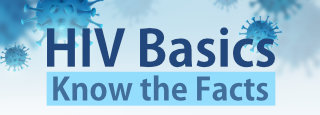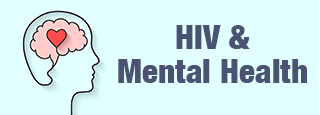HIV Medications
One of the most important things you can do when you’re living with HIV is to take your HIV medications regularly. HIV meds, also called antiretroviral therapy or ART, lower your HIV viral load, which is the amount of HIV virus in the blood. When your viral load can no longer be detected by standard tests, this is known as undetectable.
A lot has changed since the early days of HIV medications in the 1990s; HIV treatment now is more powerful, safer, and easier to take than it’s ever been.
This information is intended to support, not replace, the advice you get from your doctor or specialist.
This information is intended to support, not replace, the advice you get from your doctor or specialist.
Quicklinks:
How do HIV Medications work?
The simplest explanation:
- HIV, as a virus, needs a living host to reproduce.
- HIV uses proteins called enzymes to help get into T cells, which are a type of immune system cell.
- Once HIV gets inside a T cell, it uses the cell to make more copies of itself.
- HIV Medications work by blocking a lot of these enzymes.
- Different HIV Medications work in different ways: Some stop the virus from using the T cell to make more copies of itself, while others prevent HIV from entering T cells in the first place.
The medications used to fight HIV are taken in multi-drug combinations that focus on stopping HIV at a few different points of its reproductive cycle.
This way, if one of the medications can’t fully stop HIV at one step (for example, entering the T cell), there is another waiting to halt it at a different step (for example, copying its genetic material).
Understanding your Immune System
One of the most important concepts to understand when it comes to your HIV medications is about your immune system and what is actually happening in your body when you are living with HIV:
- Because your body sees HIV as a foreign invader, your immune system responds by sending T cells (among other things) to fight it.
- This fight causes a persistent and chronic state of inflammation in your entire body, including your joints, heart, brain, kidneys, and a host of other organs.
- Over time, this heightened state of inflammation can lead to health problems of their own (aside from the long-term effects of HIV itself), including early arthritis, higher risk of stroke and heart attacks, fragility of bones, and overall frailty.
The goal of being on HIV medications is to lower the amount of HIV in the body and bloodstream, which helps the immune system not have to fight so much. As a result, it won’t produce as much of the widespread inflammation that can eventually be destructive to your body.
Think of it this way: Your body’s immune system will naturally be doing everything it can to combat the virus. But with the virus using that same immune system to make copies of itself and eventually destroy it, taking approved HIV medications is the best way to help your body in this daily struggle.
Think of it this way: Your body’s immune system will naturally be doing everything it can to combat the virus. But with the virus using that same immune system to make copies of itself and eventually destroy it, taking approved HIV medications is the best way to help your body in this daily struggle.

What about HIV Medication Side Effects?
Many years ago, HIV medications used to have a lot of side effects, and they were often severe. But the meds people commonly use today are much, much safer.
There are always potential side effects with every medication we take, including over-the-counter pain medications, drugs that control fevers, and treatments for high blood pressure. HIV drugs are no different.
The key word to remember is “potential” side effects. Complications from HIV medications are not guaranteed to happen, and if they do, they are not the same for everyone. Before you say “no” to taking a medication because someone you know had a bad reaction or you remember an old report about toxic HIV drugs, do more research: talk to your HIV Specialist, as well as other people living with HIV. A medication that didn’t work for one person may be your saving grace.
HIV Meds Used to Be Very Toxic
There’s a lot of misinformation floating on the internet and social media about the toxicity of current HIV medications. Truth is, it’s the older HIV meds—like AZT (a.k.a. zidovudine or Retrovir), d4T (a.k.a. stavudine or Zerit) and others that were commonly used in the 1990s and early 2000s—that had many side effects. Nausea, headaches, a metallic taste in the mouth, diarrhea, low blood counts, and nerve damage were just some of the common complications we used to see from those medications.
In fact, many people living with HIV back then used to comment that taking HIV meds felt like they were substituting one disease for another: While ART slowed down the virus and helped people them live longer, they now had to deal with all the toxicity from those early medications.
The Worst HIV Medication Side Effects Are in the Past
The good news is, current formulations and combinations of ART are very safe and well tolerated by most people. They’re also much less of a hassle to take: Many do not have to be taken with food or certain amounts of water as previous regimens did.
Some of the potential side effects we see now with some people on ART include weight gain and increases in cholesterol. Reports you may have seen about regarding serious kidney damage and destructive bone loss, while a possibility, are unlikely to happen with the vast majority of people who are on ART.
Some of the potential side effects we see now with some people on ART include weight gain and increases in cholesterol. Reports you may have seen about regarding serious kidney damage and destructive bone loss, while a possibility, are unlikely to happen with the vast majority of people who are on ART.
In many cases, an astute health care team can help identify whether you’re potentially at risk for one of these more serious side effects, and ensure you take a different HIV treatment regimen that’s safer for you.
What is HIV Drug Resistance, and what can I do about it?
With the development of newer categories of medications and simpler regimens to take, resistance to HIV drugs has become less frequent among people living with HIV.
But it does still happen, particularly with long-term HIV thrivers who have been on multiple different HIV medication regimens.
Why Do People Develop HIV Medication Resistance?
There are three reasons why people may develop resistance to one or more HIV medications:
- The virus can get clever and become resistant to medications if you have not been taking them consistently. This is why many medical providers stress the concept of “adherence,” or taking your medications as directed every day.
- You may have been exposed to HIV through someone who already had a resistant virus.
- The virus may get tricky on its own and figure out a way to maneuver around the medications, even if you take them faithfully.
Low adherence is a common cause of drug resistance. When a person misses too many doses, levels of the medications in their blood may drop lower, and the virus is able to outsmart the medications so that they don’t work anymore.
Usually, the first sign you’ll see that drug resistance is happening is that your viral load will stop being undetectable and start to go higher (over 2,000 copies per milliliter). If this happens, you will want to talk with your health care provider about doing resistance testing to confirm what drugs you’ve become resistant to and figure out a new regimen that will work.
Usually, the first sign you’ll see that drug resistance is happening is that your viral load will stop being undetectable and start to go higher (over 2,000 copies per milliliter). If this happens, you will want to talk with your health care provider about doing resistance testing to confirm what drugs you’ve become resistant to and figure out a new regimen that will work.
What Do I Do If I Have HIV Drug Resistance?
Whether you have become resistant to certain classes of HIV medications in the past, or whether you just found out for the first time that you are resistant to some medications—all is not lost! Newer HIV medications are not only strong at combating HIV, easy to take, and cause few side effects; they can also often work well against resistant virus, and are much more forgiving if you miss a dose here and there.
Additionally, scientists and medical providers are tirelessly working to explore new combinations of powerful medications that weren’t used together before in an effort to treat people who are living with resistant strains of HIV.
Additionally, scientists and medical providers are tirelessly working to explore new combinations of powerful medications that weren’t used together before in an effort to treat people who are living with resistant strains of HIV.
What this means is that you can work with your health care provider to get the bloodwork that will show which medications will work best for you. Together, you can find an ART regimen that will combine the medications that work best, and avoid the ones that may not work as well for you anymore.
Future developments in HIV Medication Treatment
The future of HIV medication treatment looks very promising. Here’s why:
- HIV treatment regimens keep getting stronger, safer, and easier to take. New pills get approved every year, and more are on the way.
- Pills aren’t the only form of treatment in the works: Scientists are also working to develop HIV meds that can be taken by injection just once every couple of months, instead of by mouth every day.
- In addition, new forms of treatment are being researched that work in a totally different way from ART—and may help the body fight off HIV on its own.
With monocolonal antibodies, however, these tools are manufactured in a lab. Then, instead of waiting for the human body to produce more antibodies to fight HIV off naturally, we can give someone these antibodies in an injection or infusion that will enter the blood and block HIV from entering T cells.
If all of that sounds kind of like an HIV prevention vaccine or a cure, then you’re getting a sense of why this form of treatment is so exciting! Our main goal is still to eventually develop a cure for HIV, and in fact the science behind these monoclonal antibodies may hold the key to that.
Until that cure comes, make sure you are taking your HIV medications consistently and following up with your medical team regularly. This way your mind, body, and spirit will be in the best possible state to welcome that cure when it is developed and available.
If all of that sounds kind of like an HIV prevention vaccine or a cure, then you’re getting a sense of why this form of treatment is so exciting! Our main goal is still to eventually develop a cure for HIV, and in fact the science behind these monoclonal antibodies may hold the key to that.
Until that cure comes, make sure you are taking your HIV medications consistently and following up with your medical team regularly. This way your mind, body, and spirit will be in the best possible state to welcome that cure when it is developed and available.
HIV Medication Drug Interactions
Some drug interactions can make the drug you take less effective. And some combinations of drugs can be dangerous. Always check when you switch medications to make sure everything is safe.

HIV Medications available in New Zealand
Enter the category for this item: PIs
Protease Inhibitors (PIs)

Aptivus
(tipranavir)
(tipranavir)

CURRENTLY NOT PHARMAC FUNDED

Evotaz
(atazanavir / cobicistat)
(atazanavir / cobicistat)

CURRENTLY NOT PHARMAC FUNDED

Invirase
(saquinavir)
(saquinavir)

CURRENTLY NOT PHARMAC FUNDED
Enter the category for this item: Combination Agents
Combination Agents

Biktarvy
(bictegravir / tenofovir alafenamide / emtricitabine)
(bictegravir / tenofovir alafenamide / emtricitabine)

CURRENTLY NOT PHARMAC FUNDED

Cimduo
(lamivudine / tenofovir disoproxil fumarate)
(lamivudine / tenofovir disoproxil fumarate)

CURRENTLY NOT PHARMAC FUNDED

Complera
(rilpivirine / tenofovir disoproxil fumarate / emtricitabine)
(rilpivirine / tenofovir disoproxil fumarate / emtricitabine)

CURRENTLY NOT PHARMAC FUNDED

Delstrigo
(doravirine / lamivudine / tenofovir disoproxil fumarate)
(doravirine / lamivudine / tenofovir disoproxil fumarate)

CURRENTLY NOT PHARMAC FUNDED

Genvoya
(elvitegravir / tenofovir alafenamide / emtricitabine / cobicistat)
(elvitegravir / tenofovir alafenamide / emtricitabine / cobicistat)

CURRENTLY NOT PHARMAC FUNDED

Juluca
(dolutegravir/rilpivirine)
(dolutegravir/rilpivirine)

CURRENTLY NOT PHARMAC FUNDED

Odefsey
(rilpivirine / emtricitabine / tenofovir alafenamide)
(rilpivirine / emtricitabine / tenofovir alafenamide)

CURRENTLY NOT PHARMAC FUNDED

Stribild
(elvitegravir / cobicistat / emtricitabine / tenofovir)
(elvitegravir / cobicistat / emtricitabine / tenofovir)

CURRENTLY NOT PHARMAC FUNDED

Symtuza
(darunavir / cobicistat / emtricitabine / tenofovir alafenamide)
(darunavir / cobicistat / emtricitabine / tenofovir alafenamide)

CURRENTLY NOT PHARMAC FUNDED

Symfi Lo
(efavirenz / lamivudine / tenofovir disoproxil fumarate)
(efavirenz / lamivudine / tenofovir disoproxil fumarate)

CURRENTLY NOT PHARMAC FUNDED

Triumeq
(dolutegravir / abacavir / lamivudine)
(dolutegravir / abacavir / lamivudine)

CURRENTLY NOT PHARMAC FUNDED
Enter the category for this item: Entry Inhibitors
Enter the category for this item: NRTIs
Nucleoside / Nucleotide Reverse Transcriptase Inhibitors (NRTIs)

Descovy
(emtricitabine / tenofovir alafenamide)
(emtricitabine / tenofovir alafenamide)

CURRENTLY NOT PHARMAC FUNDED

Hivid
(zalcitabine, ddC)
(zalcitabine, ddC)

CURRENTLY NOT PHARMAC FUNDED

Lamivudine Zidovudine Alphapharm
(zidovudine / lamivudine)
(zidovudine / lamivudine)

Enter the category for this item: NNRTIs
Enter the category for this item: Integrase Inhibitors
Enter the category for this item: PK (pharmacokinetic) Boosters
PK (pharmacokinetic) Boosters

Tybost
(cobicistat)
(cobicistat)

CURRENTLY NOT PHARMAC FUNDED
Enter the category for this item: Long-acting Injectables
Long-acting Injectables

Cabenuva
(injectable cabotegravir / rilpivirine)
(injectable cabotegravir / rilpivirine)

CURRENTLY NOT PHARMAC FUNDED
Join Body Positive
By becoming a member you will be able to access all the services we offer, as well as support and updates to help you live better.
Newsletter
Want to be keep up with whats happening at Body Positive?
Subscribe to our newsletter below by submitting your e-mail address.
Subscribe to our newsletter below by submitting your e-mail address.




























































